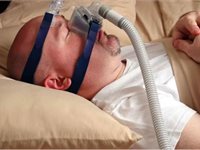Sleep disorders affect millions of people worldwide, often leading to chronic health issues if left untreated. While initial diagnosis and treatment are crucial, the role of follow-up care is equally important in ensuring long-term success. This blog explores why follow-up care matters in sleep disorder treatment, particularly in Rego Park, Queens, where residents face unique lifestyle and environmental factors that can impact sleep health.
Understanding Sleep Disorders: A Brief Overview
Sleep disorders encompass a wide range of conditions, from insomnia to sleep apnea. These disorders can significantly affect daily life, impacting mood, productivity, and overall health.
The Connection Between Sleep and Health
Poor sleep can lead to various health problems, including obesity, diabetes, and cardiovascular disease. Moreover, untreated sleep disorders can exacerbate mental health issues, such as anxiety and depression.
Initial Treatment: Setting the Foundation
The journey to better sleep often begins with a comprehensive evaluation by a healthcare professional. This initial assessment typically includes:
- Sleep studies: To monitor sleep patterns and identify disorders.
- Lifestyle assessments: Evaluating daily habits that may contribute to sleep issues.
- Treatment options: This could involve lifestyle changes, therapy, or medication.
While these steps are critical, they are just the beginning.
Why Follow-Up Care Is Essential
Follow-up care is the cornerstone of effective sleep disorder management. It provides ongoing support, allowing individuals to adjust their treatment plans based on their progress and any new developments.
Monitoring Progress: The Key to Improvement
Regular follow-ups help healthcare providers monitor the effectiveness of the prescribed treatment. They can assess:
- Symptom changes: Are they improving, worsening, or remaining the same?
- Side effects: Are any medications causing adverse reactions?
- Lifestyle adjustments: Are individuals adhering to suggested changes?
Addressing Challenges: A Tailored Approach
Sleep treatment is rarely a one-size-fits-all solution. Follow-up care allows healthcare professionals to adapt treatment strategies to meet each individual’s specific needs. This personalized approach can make a significant difference in overall outcomes.
The Local Context: Rego Park’s Unique Challenges
In Rego Park, Queens, residents face specific challenges that can impact sleep health.
Urban Living and Sleep Disruption
Living in a bustling urban environment can lead to increased noise levels and light pollution, both of which can disrupt sleep. Follow-up care is crucial in addressing these localized challenges. Healthcare providers can offer tailored advice on how to create a sleep-friendly environment at home.
Cultural Considerations
Rego Park is known for its diverse community, which may have various cultural perspectives on health and wellness. Follow-up care can help bridge these differences, ensuring that treatment approaches are culturally sensitive and effective for everyone involved.
The Benefits of Consistent Follow-Up Care
Building Trust and Communication
Establishing a relationship with healthcare providers is essential for effective treatment. Regular follow-ups foster open communication, allowing individuals to voice their concerns and share their experiences. This dialogue is vital for building trust and ensuring that treatment plans are genuinely effective.
Long-Term Health Outcomes
Research has shown that consistent follow-up care leads to better long-term health outcomes for individuals with sleep disorders. By staying engaged with their healthcare providers, individuals are more likely to adhere to treatment plans, leading to improved sleep quality and overall health.
How to Maximize Follow-Up Care Effectively
Keep a Sleep Diary
One of the best ways to track progress is by maintaining a sleep diary. Individuals should record their sleep patterns, feelings upon waking, and any factors that may affect their sleep. This information can provide valuable insights during follow-up appointments.
Stay Informed
Education plays a critical role in sleep health. Individuals should seek to understand their sleep disorders and stay informed about the latest research and treatment options. This knowledge empowers them to participate actively in their care.
Open Lines of Communication
Being transparent with healthcare providers about what is working and what isn’t is crucial. Individuals should feel encouraged to express any concerns or changes they’ve noticed, as this feedback helps providers refine treatment strategies.
Frequently Asked Questions (FAQs)
1. How often should I have follow-up appointments for my sleep disorder?
Follow-up appointments are typically recommended every few months, but this can vary based on individual needs and the severity of the condition. It’s essential to discuss your specific situation with your healthcare provider.
2. What should I bring to my follow-up appointment?
Bring your sleep diary, a list of any medications you’re taking, and any questions or concerns you may have. This preparation will help facilitate a productive conversation.
3. Can follow-up care include referrals to other specialists?
Yes, depending on your needs, healthcare providers may refer you to specialists, such as a nutritionist or therapist, to address any underlying issues affecting your sleep.
4. What if my treatment doesn’t seem to be working?
It’s important to communicate this to your healthcare provider during your follow-up. They can assess your situation and make necessary adjustments to your treatment plan.
5. Are there any lifestyle changes I can make to improve my sleep?
Yes, some lifestyle changes include maintaining a regular sleep schedule, creating a comfortable sleep environment, and limiting screen time before bed. Your healthcare provider can offer personalized advice based on your circumstances.
Conclusion
Follow-up care is a vital component of effective sleep disorder treatment. It allows for ongoing assessment and adjustment of treatment plans, ensuring that individuals can achieve the best possible outcomes. In Rego Park, Queens, where unique local factors can impact sleep health, personalized care is even more critical. By prioritizing follow-up care, residents can take proactive steps toward better sleep and overall well-being. For further assistance, reach out to the Vector Sleep Diagnostic Center at (718) 830-2800.


